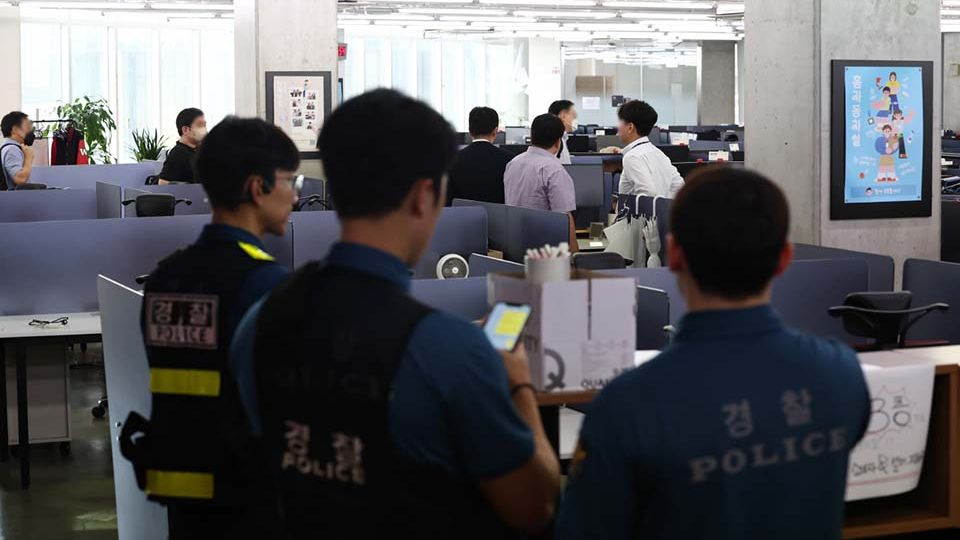August 2, 2024
SEOUL – The local units of the cash-crunched Singapore-based Qoo10 group are scrambling to escape the sinking boat, with possible acquisition deals coming onto the table.
Among the speculations was Chinese e-commerce platform AliExpress’ buyout of the Korean online marketplace WeMakePrice, yet AliExpress Korea denied the rumor Thursday.
“We are not considering acquiring WeMakePrice, and we confirm that we have not been contacted by the company,” said an official from AliExpress Korea.
Earlier that day, local daily newspaper Chosun Ilbo reported that Qoo10 plans to sell WeMakePrice to Chinese e-commerce platform operators AliExpress and Temu. WeMakePrice, along with another online shopping site Tmon, have recently been under scrutiny for payment delays to its vendors amid a liquidity crisis of Qoo10.
A Temu spokesperson stated that the company is awaiting a response from its parent company, PDD Holdings.
Interpark Commerce, another Qoo10 subsidiary, is also pursuing a sale. Reports indicate that CEO Kim Dong-sik is actively seeking potential new owners within the industry.
Regarding the WeMakePrice sale, Qoo10 Group CEO Ku Young-bae reportedly stated that the initiative was driven by the platform’s CEO and was not directly related to him. However, he noted that he had agreed to allow the subsidiaries “to explore all possible options for their survival.”
Industry observers see little potential for anyone to acquire the debt-laden companies.
“If someone were to buy these platforms, it would likely be for their sales volume, similar to how Qoo10 acquired them to leverage their sales in expanding Qxpress’ network. However, the situation is different now. No customers will use Tmon and WeMakePrice, and neither will the vendors,” said Hong Ki-hoon, a business professor at Hongik University. Qxpress is Qoo10’s logistics arm.
According to the government, the two Korean platforms’ overdue payments to sellers have reached around 213 billion won ($156.3 million) and are expected to surpass 1 trillion won with upcoming settlements.
Both firms have experienced prolonged capital impairment, with Tmon’s total assets showing a negative 638.6 billion won in 2022 and WeMakePrice’s at a negative 239.8 billion won in 2023. Their combined accumulated deficit is estimated at around 2 trillion won.
Interpark Commerce is also struggling, with liabilities totaling 99.3 billion won last year— over five times its net assets of 15.9 billion won.
The situation is further complicated by questionable capital flows into the parent company from its Korean units.
Financial regulators found signs of illegal activity when tracking Qoo10’s capital and requested a prosecution investigation. On Thursday, prosecutors raided Tmon and WeMakePrice’s headquarters, Ku’s home and other related sites to secure evidence.
During Tuesday’s hearing, Ku revealed that about 40 billion won from Tmon and WeMakePrice was used to fund Qoo10’s acquisition of the American e-commerce platform Wish in February, with unpaid vendor settlements factored in.
“The new owner will need to invest not only in the purchase but also to cover such financial gaps. Exactly how much has been diverted from these companies remains unclear, and the extent of this uncollected capital will be decisive for any potential deals,” Hong added.
The investigation is also looking into whether the companies continued their operations despite knowing they could not make timely vendor payments due to liquidity issues.
Some view that the buyout rumors may be mere strategies to improve Tmon and WeMakePrice’s positions for seeking court receivership.
The Seoul Bankruptcy Court is reviewing the applications filed by the firms on Monday.
“One key factor the court considers in determining rehabilitation is the companies’ commitment to normalize operations, and an M&A is one effective method to continue the business,” Hong explained.
The court is set to interrogate the heads of both firms on Friday and will decide whether to approve the rehabilitation in the coming week or so.


